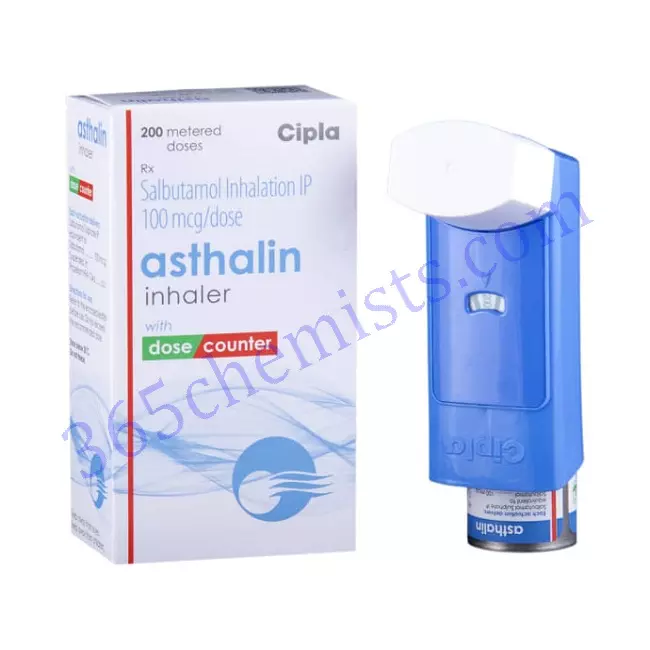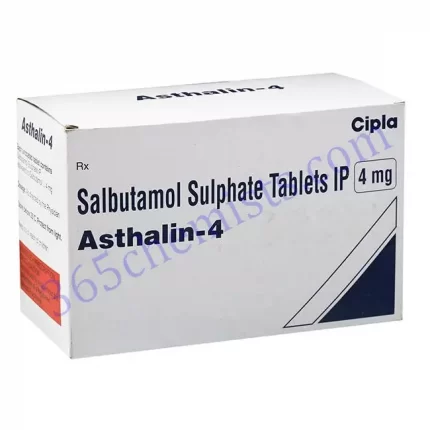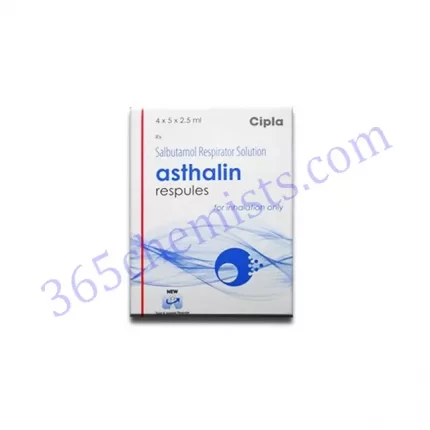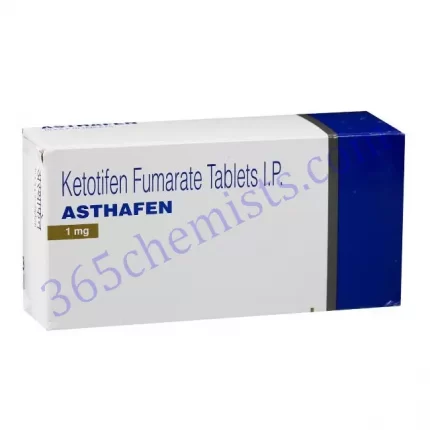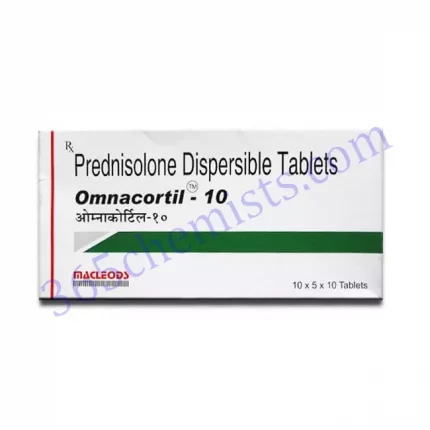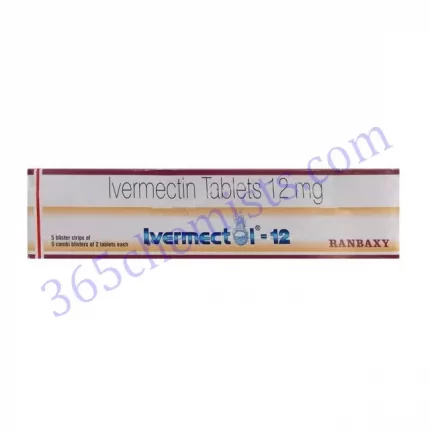Asthalin Inhaler (Salbutamol 100 mcg) Product Description
Asthalin Inhaler (100 mcg) is a prescription and bronchodilator medication that is used for the prevention or treatment of bronchospasm, a condition in which there is smooth muscle constriction of the airways of the lungs resulted in reduced airflow. This is common in case of respiratory conditions such as asthma and chronic obstructive pulmonary disease (COPD). The active component of the Asthalin Inhaler is Salbutamol, which is a bronchodilator. It is a fast-acting anti-asthmatic medicine and effectively used in treating asthmatics in the United States and other countries around the world.
What is Asthalin Inhaler (Salbutamol 100 mcg)?
The Asthalin Inhaler (Salbutamol 100 mcg) is a prescription medicine which belongs to the group of medicine ‘quick-acting relievers or bronchodilators’. They are recommended by doctors in the US for treating the symptoms associated with asthma and COPD such as breathlessness, wheezing sound, restricted airflow, and other breathing-related issues. The Asthalin 100 mcg Inhaler is also called instant reliever inhaler because it gives fast and long-lasting relief for several hours when you require it. The active ingredient present in Asthalin Inhaler is Salbutamol, which is a bronchodilator and helps keep the airways of the lungs open. Cipla Ltd. is the trusted pharmaceutical company that manufactures Asthalin Inhaler 100 mcg. In the United States, it is available for use in different packaging sizes, with each inhaler containing 200 metered doses.
How does the Asthalin Inhaler work?
- The ‘Salbutamol’ constituent present in the Asthalin Inhaler is a bronchodilator.
- It provides relief from spasms and constriction of airways in respiratory diseases.
- In case of respiratory conditions like asthma and COPD, the airways become inflamed and narrow.
- Lung inflammation causes obstructed airflow resulting in difficulty in breathing and wheezing sound from the lungs.
- Salbutamol stimulates the beta-2 adrenergic receptors present in the smooth muscles of the airways.
- This stimulation relaxes the bronchial muscles and widens the blockage airways of the lungs.
- Opening up of the air passages provides relief from spasm bronchospasm and facilitates easier breathing.
- In addition to this mechanism of action, Salbutamol is also able to stop the release of certain bronchoconstrictors such as leukotrienes and histamines.
Possible side effects
Generally, the Asthalin Inhaler is quite safe. However, it may produce certain mild side effects in patients. Most side effects do not require medical help. They subside on their own once the body becomes attuned to the medicine. Some of the possible side effects of the Asthalin Inhaler are:
- Quick or irregular heartbeats
- Shaking and trembling of hands and feets
- Muscle cramps
- Dizziness
- Headache
- Palpitations
- Cough
- Throat irritation
- Sore or dry throat
- Swelling of face, hands, and feet
In case these side effects persist or become severe, seek assistance from a healthcare professional immediately.
Directions for use
- Read the label for directions before use.
- Prior to using the Asthalin Inhaler yourself, learn the right technique of using it from your doctor.
- If possible, try using the inhaler for the first time in front of your doctor.
- Shake the inhaler well before using it.
- Prime the inhaler by releasing two puffs of the medication in the air.
- Place the mouthpiece of the inhaler between the teeth in your mouth. Ensure complete closure,
- Breathe in for 5-10 seconds through your mouth, while simultaneously pressing the inhaler to release a puff of medicine.
- Continue taking the puffs as recommended by your doctor.
- Keep a gap of 30 seconds between each puff.
- Once inhalation is completed, wipe the inhaler with a dry tissue paper and close it.
- After inhalation, rinse your mouth with water and spit to avoid any side-effects of the medicine.
Related Product
Asthalin 2mg Tablet
Asthalin 4mg Tablet
Asthalin Inhaler
Asthalin Respirator Solution
Asthalin Respules
Asthalin Rotacaps
Storage
- Store in a cool and dry place (below 30oC).
- Keep away from the reach of children and pets.
Warnings and precautions
- Do not use an Asthalininhaler during pregnancy or breastfeeding, unless prescribed by your doctor.
- Do not use the Asthalin inhaler if you are sensitive to Salbutamol.
- Inform your doctor if you are having any pre-existing medical conditions such as high blood pressure, diabetes, or heart disease.
- The Asthalin inhaler can be used by children above 4 years of age if prescribed by the doctor.
- Do not drive if you feel dizzy or sleepy.
- The Asthalin inhaler should be used with caution in patients having a history of liver and kidney disease.
Where to buy Asthalin Inhaler (Salbutamol 100 mcg)?
AsthalinInhaler (Salbutamol 100 mcg) is a trusted prescription medicine available for treatment of asthma and other respiratory conditions in the United States. It is popular due to its fast relief and effectiveness in treating the symptoms of bronchospasm such as chest tightening, coughing, wheezing, shortness of breath, etc. It is available at various online pharmacy stores in the US. Generic Bucket is a preferred online store in the US where the AsthalinInhaler can be purchased at a reasonable price.
Specifications:
- Strength: 100 mcg/dose
- Form: Inhaler
- Dosage route: Oral
- Category: Adrenergic bronchodilators
- Composition: Salbutamol (100 mcg)
- Manufacturer: Cipla Ltd.
- Usage: Treatment of asthma and COPD
- Packaging: 3 inhalers, 5 inhalers, 10 inhalers (1 inhaler contains 200 metered doses)

